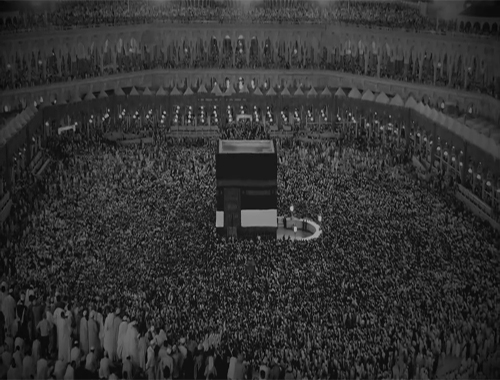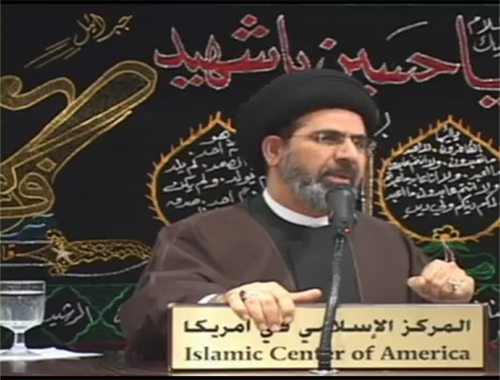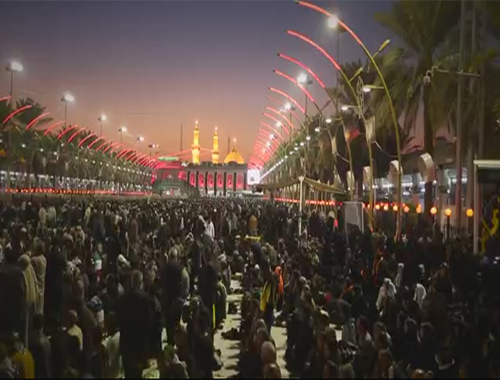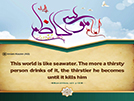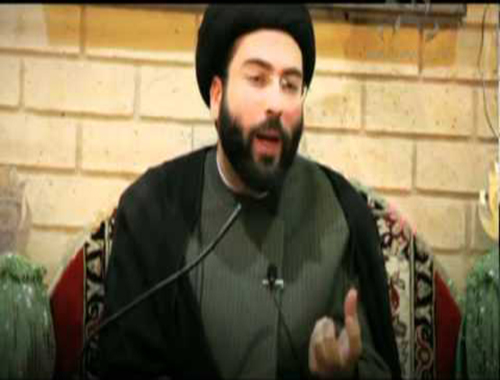
You might have heard some people are depriving of health, although they have good facilities or enough budgets to have different type of foods however, they don’t enjoy life. On the other hand, there are some people who have ordinary foods but they are healthy and have long life.
So, what is the secret of health?
Some people think health comes by eating different foods contains proteins, fibers, vitamins… but the matter is how to eat not what to eat!
Whatever you read in this article is from the valuable words of sinless Imams (A.S) that includes three important issues about eating habits:
– Habits before eating
– Habits through eating
– Habits after eating
If you notice and perform them, you will have a strong body and a fresh spirit. Do not forget, Prevention is better than cure.
Habits before eating:
– Start your meals with the name of Allah (In the name of God, The merciful, the compassionate)
Imam Ali (A.S) said: Reminisce Allah before eating and avoid of ranting through eating because food is a gift from Allah and you should reminisce and thank him.
(frou’e Kafi, volume 6, page 296)
– Eating a little Salt before meals
Imam Ali (A.S) said: at the beginning of eating, eat a little salt. If people knew the nature of salt, they would use it instead of each kind of cure.
(teb Al-A’emah, page 70)
– Start meals with vinegar
Mohammad ibn Ali said: a man met Imam Reza in Khorasan. A food was given to Imam alongside with vinegar and salt. Imam started eating with vinegar. That man said to Imam (A.S): O, my lord! You ordered us to start with salt?! Imam said: they are the same, truly, vinegar strengthen mind and boost wisdom.
(Teb va Darman, page 140)
– Washing hands before meals
Wash your hand before and after eating
Imam Ali (A.S) said: washing hands before eating, increase your aliment, keeps clothes clean and strengthen eyes.
(Khisal, page 612)
Habits through eating:
– Eating less and health
Imam Ali (A.S) said: decrease your eating to decrease your disease
(Qhorar Al-Hekam, volume 1, page 114)
– Eat small meals to be light hearted
The messenger of Allah, Mohammad (P.B.U.H&H.P) said: who eats less and is more light-hearted, is more popular in front of Allah.
(Kanz Al-Ommal, volume 15, page 261)
– Moderation in eating
Imam Sadiq (A.S) said: if people be moderate in their foods, their bodies will be strong and stable.
(Safinah Al-Behar, volume 2, page 79)
Imam Kazim (A.S) said: diet doesn’t mean to eat nothing, it means eat but moderate
(Vasa’el Al-Shia, volume 17, page 183)
– Glutting
The messenger of Allah, Mohammad (P.B.U.H&H.P) said: glutting destroy your intelligence
(Mostatraf, volume 1, page 180)
Imam Ali (A.S) said to one of his companions: Komeil! Don’t full your Stomach of food, leave space in it for water and air. Stop eating while you still have appetite for eating, if you perform these advices, food will be tasty to you. Truly, health comes by eating and drinking less.
(That Al-Oghoul, page 66)
– Appetite for food
The messenger of Allah, Mohammad (P.B.U.H&H.P) said: avoid eating something that you don’t have appetite for, because it makes you foolish
(La’ali Al-Akhbar)
– Always being full
Imam Ali (A.S) said: avoid of always being full or eating too much, because it stimulates disease and suffers.
(Qhorar Al-Hekam, volume 51, page 151)
– Eating unlawful food
The messenger of Allah, Mohammad (P.B.U.H&H.P) said: if anyone eats an unlawful bit, his/her prayer won’t be accepted, his/ her prayer won’t be answered, and each part of his/her body which grow by that Unlawful bit, deserve the fire (Hell).
(Behar al-Anvar volume 66, page 314)
– Hot Food
Imam Ali (A.S) said: let the hot food become colder, once, a meal was brought to the prophet and he said: let it be cold and be eatable because Allah never makes us to eat fire, blessing is in the tepid food.
(Forou’e Kafi, volume 6, page 322)
– Eating together
The messenger of Allah, Mohammad (P.B.U.H&H.P) said: the food which is more eaters (around it) is the most popular foods in front of Allah.
(Nahj Al- Fasahah, page 15)
– Blowing in food
Imam Sadiq (A.S) said: blowing in the food or drinks and the place of prostration is execrable.
(Khisal, page 158)
– Attention to the poor people
Imam Ali (A.S) said: when your meal is ready to serve, don’t reject poor ones if they reach to you.
(Mahasen Borghi, page 423)
– Night meal (dinner)
Imam Reza (A.S) said: certainly, have meals at night, even some bread, because it (Night Meal) strengthens your body.
(Teb Al- A’emah, page 65)
– Hurry in eating
Chew your food well and never hurry in eating.
Imam Sadiq (A.S) said: lengthen your eating; moments of eating won’t be counted as your lifetime.
(Safinah Al- Behar, volume 1, page 27)
– Eating and walking
Imam Sadiq (A.S) said: do not eat while you are walking, unless you have to.
(Rozah Al- Mottaghin, page 524)
– Drinking along with eating
Imam Reza (A.S) said: everyone who wants to have healthy Stomach shouldn’t drink during eating until eating get finish. Because drinking through meal make the stomach weak and blood cannot take the food’s properties.
(Mostadrak Al- Vasa’el)
Imam Sadig (A.S) said: drinking water with greasy food, cause pain.
(Vasa’el Al-Shia, volume 17, page 190)
Imam Reza (A.S) said: drinking cold water after hot food and after sweats, damages teeth.
(Behar Al- Anvar, volume 4)
Imam Ali (A.S) said: Frequently, I saw the prophet when he was drinking water, he breathing 3 times during drinking; he was starting in the name of Allah and was appreciating Allah after breathing.
(Behar Al-Anvar, volume 1, page 476)
Habits after eating:
– Appreciation after meal
Don’t forget to appreciate Allah after finishing the meal.
Allah says in Quran: O ye who believe! Eat of the good things that we have provided for you, and be grateful to Allah, if it is him ye worship.
(Surah Al- Baqarah, verse 172)
– Eating a little Salt after meals
Imam Baqir (A.S) said: Allah revealed to Moses (A.S): order your people to start and finish their meals with salt, otherwise, if they get sick, they just blame themselves.
(Teb Al- A’emah)
– Tooth brushing
The messenger of Allah, Mohammad (P.B.U.H&H.P) said: tooth brushing has 10 benefits. it make Allah satisfy, it increase your oblation 70 times, it’s my method and it is grateful, it makes the teeth shiny and white, it makes gum stronger, it washes out the mucus, it eliminates weakness of eyes, and it increase your appetite.
(Khisal, page 481)
– Relaxing after meal
Imam Sadiq (A.S) said: After meal, lying on the back, make the body strong and it digest the meal and removes discomfort. Imam Reza (A.S) usually after meal lied on the back and put his right foot on the left food.
(Safinah Al-Behar, volume 1, page 27)
– Taking shower after meal
Imam Reza (A.S) said: Do not take a shower with full stomach, it causes colic.
(Resalah Al-Zahabiah, page 26-29)
Some Islamic advices:
– Always try to use healthy and fresh food.
– Use different type of food to answer your body requests.
– Do not look at the others dishes when you are eat together.
– Do not dissipate foods and drinks and respect to the food you eat, because it’s a gift from Allah.
This article borrowed from Islam, Peaceful Religion (p.f.r).
 Islam - Islam Guidance
Islam - Islam Guidance

